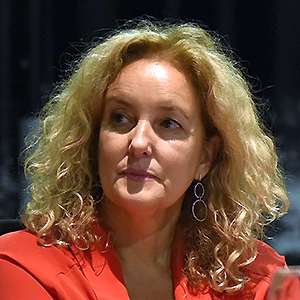Our journalists, our freedom…when journalist safety is at risk
02 May 2022
It has been written countless times that without journalism there is no democracy and that journalists are the guarantors of freedom. Let me write it one more time. And it won't be enough. Journalism is threatened and it is our obligation and our will to defend it in order to protect our fragile freedom.
The exercise of journalism is threatened and in great difficulties in many countries of the world. Journalists are at the forefront of conflicts and situations that put their physical and mental integrity to the limit in order to continue carrying out their profession and, in many cases, these professionals are helpless and without any support from the media or institutions.
In fact, the situation in general has been worsened by the coronavirus pandemic, which has been the cause or pretext for governments, parties or other political forces to increase the blocking of information through restrictions and impediments to cover current affairs. There is a growing difficulty for journalists to investigate and report on sensitive issues, not only in Asia, Latin America, and the Middle East, but also in Europe.
Journalism continues to be threatened in more than 130 countries, in a context worsened by the pandemic and misinformation.
Figures indicate that journalists encounter serious obstacles in more than 70%* of the countries. Eritrea, North Korea and Turkmenistan maintain the worst positions on the list. The opacity in the last two is such that they have denied the existence of any case of Covid-19. It goes without saying that the Russian invasion of Ukraine is the newest and a very clear example of how difficult it is to work as a journalist and how important the role is in order to keep society properly informed.
Our fear is their power. A very tangible consequence is censorship: many professionals stop reporting on a given topic because they fear attacks. We all know journalists who didn't cover something or avoided a topic because they're afraid of the consequences.
Journalists work to promote transparency and accountability. And they can be victims of silencing strategies when they threaten powerful interests or expose governments or important figures in the name of the public interest. That’s why it is so important to protect journalists.
Even the most subtle attempts at silencing, such as threatening to sue a citizen journalist or freelancer who doesn't have a big outlet behind them, or prying into a reporter's personal life, can affect the work of journalists of all levels.
Harassment can contribute to women's withdrawal from traditionally male-dominated fields, further minimizing female voices. Female journalists receive a disproportionately higher number of online attacks than men and it is much more common if the female journalists in question report on topics such as sports. In this way, the harassment encourages greater disparity gender in newsrooms.
A similar mechanism is likely to affect other members of traditionally under-represented groups, such as journalists from ethnic, racial and linguistic minorities; and gender minorities. Covering the issues of the LGBTQ community carries a heightened risk of threats and retaliation. A report by Amnesty International found that women of colour are subject to a disproportionate amount of online harassment.
These growing threats to journalists who also belong to traditionally under-represented communities discourage their participation and could affect the diversity of newsrooms and media outlets, leading to greater challenges and constraints across the industry. And, in consequence, to limit freedom and democracy.
Let’s work together to protect journalism.
*Source – RSF (Reporters Without Borders)
Find out more on our #OurJournalistsOurFreedom campaign
Members can read more about RTVE’s contribution to gender equality - Upholding Gender Equality With An Equality Guide - in our DEI Casebook.





